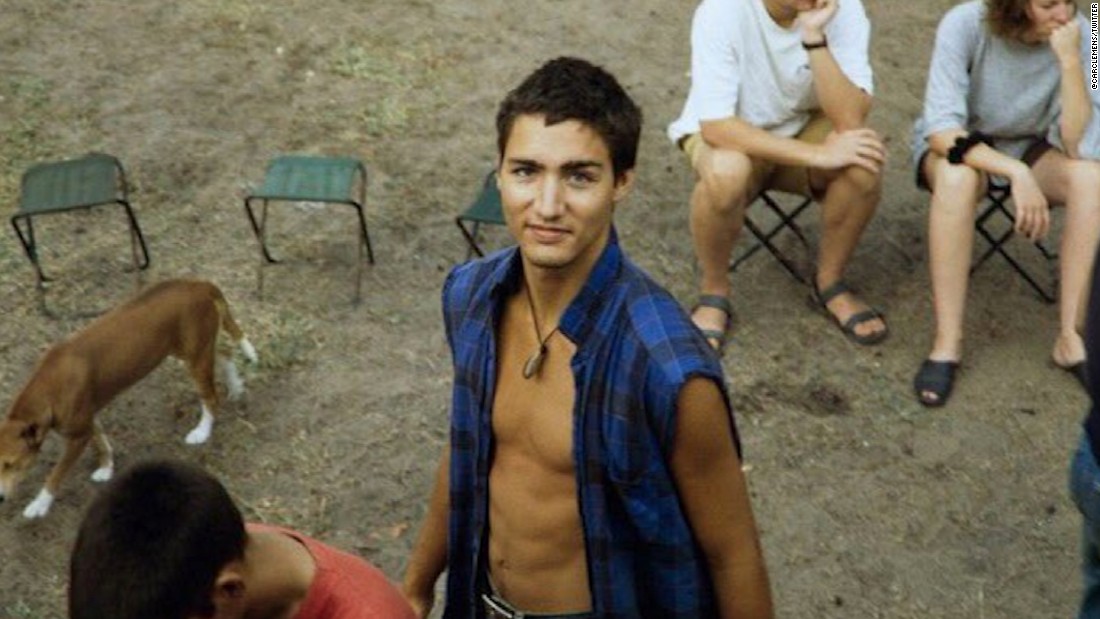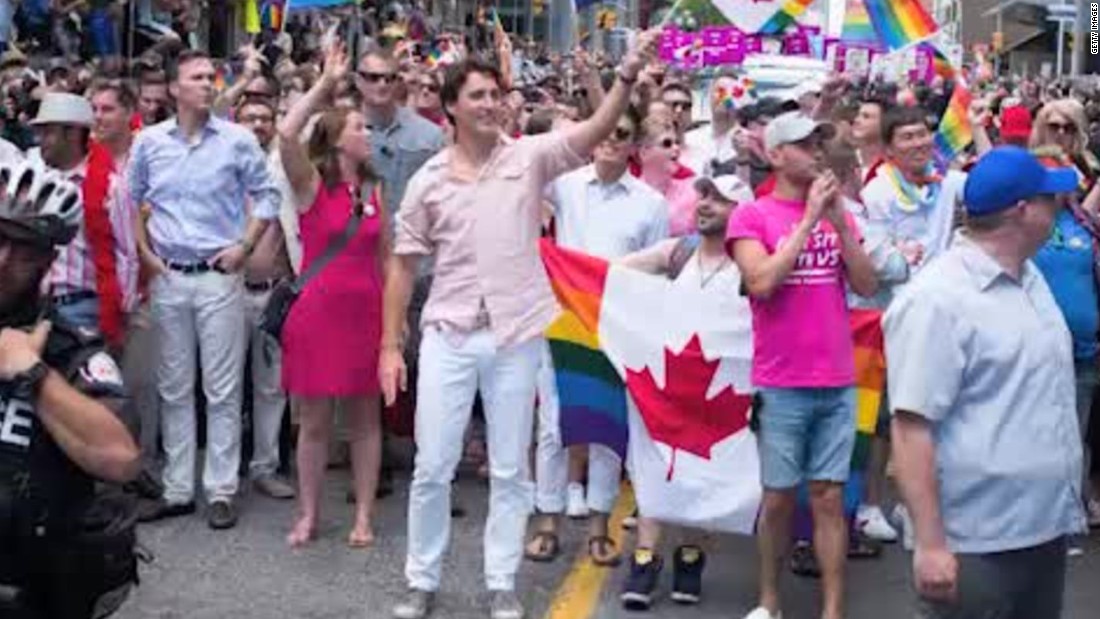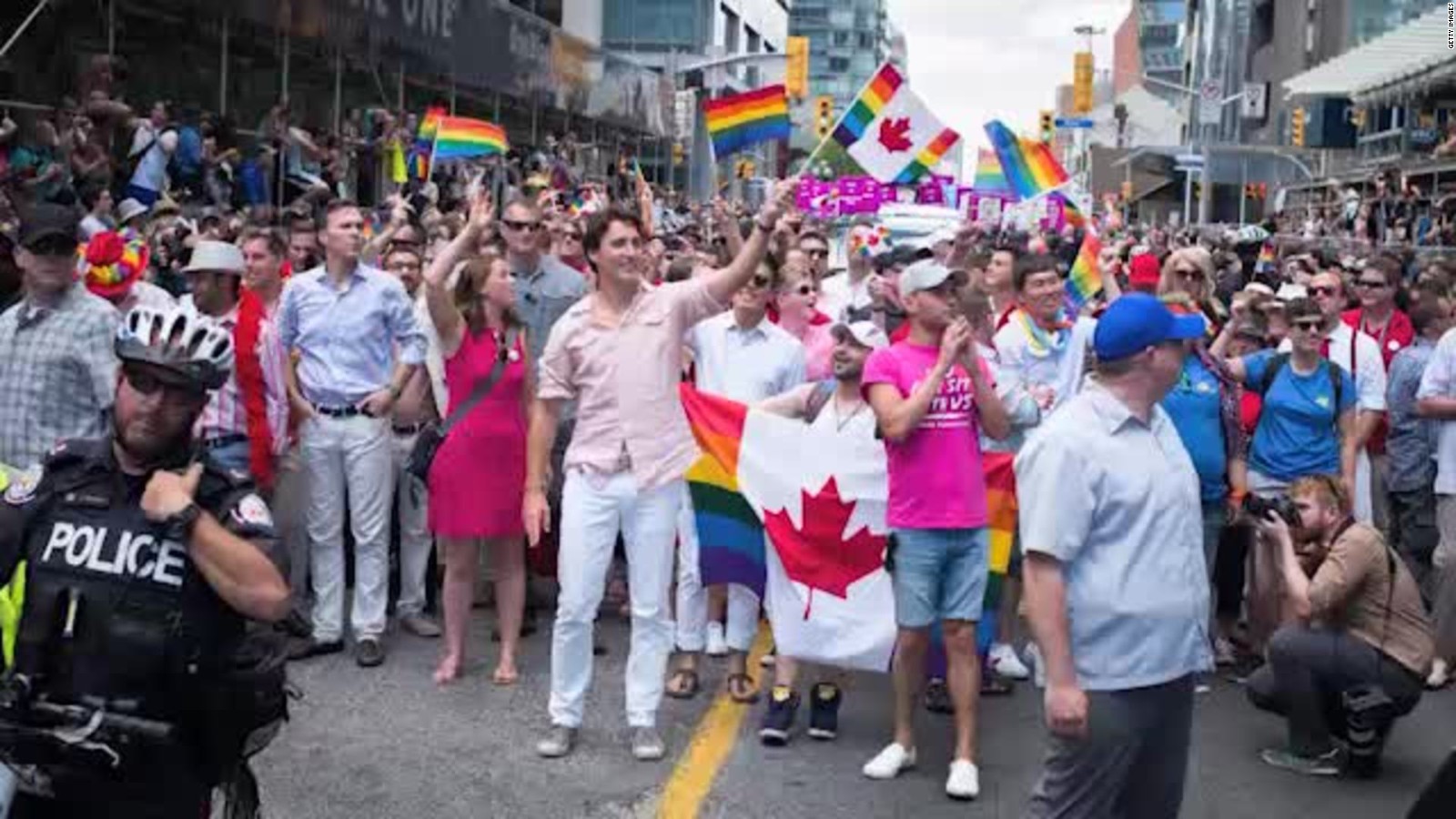Let's cut to the chase, folks. The question "Is Justin Trudeau gay?" has been swirling around in political circles and social media for years. As the Prime Minister of Canada, Justin Trudeau often finds himself at the center of debates, rumors, and speculation. But what's the real story behind this question? Is it based on facts, or is it just another attempt to sensationalize politics? Let's dive in and find out.
Justin Trudeau is not just any politician; he's a global figure known for his progressive policies and outspoken advocacy for LGBTQ+ rights. This has led some people to wonder if his support for the community stems from personal experience. While it's important to respect his privacy, we also need to address the elephant in the room. The question itself raises broader issues about how we perceive political leaders and their personal lives.
So, why are we talking about this? Because it's more than just a gossip-worthy topic. It touches on topics like privacy, stereotypes, and the pressure on public figures to be open about their personal lives. Stick around as we unpack this question, explore the facts, and clear the air once and for all.
Read also:Unveiling The World Of Mkvcenimasin Your Ultimate Movie Hub
Table of Contents
- Biography of Justin Trudeau
- A Closer Look at His Personal Life
- Justin Trudeau's Support for the LGBTQ+ Community
- Media Speculation and Its Impact
- Respecting Privacy Boundaries
- Public Opinion on the Matter
- The Role of Misinformation
- Consequences of Spreading Rumors
- Historical Context of LGBTQ+ Politics
- Final Thoughts
Biography of Justin Trudeau
Before we jump into the juicy details, let's get to know the man behind the question. Justin Trudeau was born on December 25, 1971, in Ottawa, Canada. He is the eldest son of Pierre Trudeau, Canada's 15th Prime Minister, and Margaret Sinclair. Growing up in the public eye, Justin developed a deep understanding of politics from an early age. But his journey wasn't just about following in his father's footsteps.
Trudeau pursued a career in teaching before entering politics. He worked as a high school teacher and a public speaker, focusing on issues like education and youth empowerment. His passion for social justice eventually led him to join the Liberal Party of Canada. In 2015, he became the leader of the party and was elected as Canada's 23rd Prime Minister.
Key Facts About Justin Trudeau
Here's a quick rundown of some important facts about Justin Trudeau:
- He is married to Sophie Grégoire Trudeau, with whom he has three children.
- Trudeau is known for his progressive policies, including climate change initiatives and gender equality.
- He has been a vocal advocate for LGBTQ+ rights, earning praise from activists worldwide.
Biodata Table
| Full Name | Justin Pierre James Trudeau |
|---|---|
| Birth Date | December 25, 1971 |
| Spouse | Sophie Grégoire Trudeau |
| Children | Three (Ellia, Hadrien, and Xavier) |
| Profession | Prime Minister of Canada |
A Closer Look at His Personal Life
Now, let's talk about the elephant in the room. Is Justin Trudeau gay? The short answer is no. Trudeau is openly married to Sophie Grégoire Trudeau, and they have been together for over two decades. They met in 1994 at a charity event, and their relationship has been well-documented over the years.
That said, it's worth noting that Trudeau's personal life is often scrutinized by the media. From his fashion choices to his public appearances, every detail seems to be up for debate. This level of attention can sometimes lead to misunderstandings or even deliberate misinformation.
Why the Rumors Persist
Rumors about Trudeau's sexuality may stem from his progressive stance on LGBTQ+ issues. Some people might assume that his strong support for the community is a reflection of his personal beliefs. However, it's important to remember that a leader's policies don't always align with their personal life. Trudeau has consistently emphasized the importance of equality and inclusion, regardless of his own background.
Read also:Robert Charles Hunter The Unsung Hero Behind Americas Greatest Stories
Justin Trudeau's Support for the LGBTQ+ Community
One of the reasons this question keeps coming up is Trudeau's unwavering support for the LGBTQ+ community. During his time as Prime Minister, he has championed several landmark policies that promote equality and protect the rights of LGBTQ+ individuals. For instance, he introduced Bill C-16, which added gender identity and expression to Canada's Human Rights Code.
Trudeau has also been vocal about the need for better representation and inclusion. He has participated in Pride parades, addressed LGBTQ+ youth, and called for an end to discrimination. These efforts have earned him praise from activists and allies around the world.
Key Achievements in LGBTQ+ Rights
- Introduced legislation to ban conversion therapy.
- Apologized for the historical persecution of LGBTQ+ individuals in Canada.
- Appointed the first openly gay governor general, Mary Simon.
Media Speculation and Its Impact
The media plays a huge role in shaping public perception, and Trudeau's personal life is no exception. Over the years, various outlets have speculated about his sexuality, often without evidence or context. This can have a significant impact on how people view him and his policies.
Speculation isn't always malicious, but it can perpetuate harmful stereotypes and undermine a person's credibility. When it comes to public figures, there's a fine line between curiosity and invasion of privacy. It's important for journalists and commentators to approach these topics with sensitivity and accuracy.
How to Combat Misinformation
Here are a few tips for navigating media speculation:
- Verify information from credible sources before accepting it as fact.
- Be mindful of your own biases and assumptions.
- Respect the privacy of public figures unless they choose to share personal details.
Respecting Privacy Boundaries
At the end of the day, Justin Trudeau's personal life is, well, personal. While it's understandable to be curious about the people who lead our countries, we need to recognize the importance of boundaries. No one should have to disclose their sexual orientation or other private details just because they hold a public office.
Respecting privacy doesn't mean ignoring important issues. It means focusing on what truly matters—like policies, leadership, and the impact of decisions on society. By shifting the conversation to these areas, we can create a more respectful and informed dialogue.
Why Privacy Matters
Privacy is a fundamental human right, and it's especially important for public figures. When leaders feel pressured to reveal personal details, it can lead to a culture of voyeurism and exploitation. Instead of focusing on gossip, we should be asking questions that matter, like:
- How are their policies affecting marginalized communities?
- What steps are they taking to address pressing issues like climate change and inequality?
Public Opinion on the Matter
So, what do people really think about Justin Trudeau's sexuality? A 2022 survey conducted by the Angus Reid Institute found that most Canadians don't care about their leaders' personal lives as long as they're doing their job well. However, a small percentage still believe that sexual orientation should be a factor in evaluating leadership.
This divide highlights the ongoing tension between privacy and public interest. While some argue that personal details are irrelevant to governance, others feel that transparency is key to accountability. It's a complex issue with no easy answers.
Changing Perceptions
As society becomes more accepting of diverse identities, we may see a shift in how people view public figures. In the past, leaders were often expected to conform to traditional gender roles and heteronormative expectations. Today, there's more room for authenticity and individuality.
The Role of Misinformation
Misinformation is a growing problem in the digital age, and it often fuels rumors like these. Social media platforms can amplify false narratives, making it difficult to separate fact from fiction. This is why it's crucial to fact-check information and rely on trusted sources.
For example, a viral tweet claiming that Trudeau was spotted at a gay bar might seem convincing at first glance. But without corroborating evidence, it's just another baseless claim. By being critical consumers of information, we can help combat the spread of misinformation.
Consequences of Spreading Rumors
Spreading rumors about someone's personal life can have serious consequences. It can damage reputations, hurt families, and create a hostile environment for LGBTQ+ individuals. Even if the rumors are false, they can still contribute to a culture of stigma and discrimination.
It's important to remember that words have power. Before sharing a story or comment, take a moment to consider its potential impact. Are you contributing to a productive conversation, or are you perpetuating harmful stereotypes?
Historical Context of LGBTQ+ Politics
To fully understand this issue, it's helpful to look at the broader historical context of LGBTQ+ politics. In the past, being openly gay was often seen as a liability for politicians. Many leaders felt compelled to hide their true identities for fear of backlash or even legal consequences.
Thankfully, times are changing. More and more LGBTQ+ individuals are stepping into leadership roles, bringing their authentic selves to the table. This shift is a testament to the progress we've made, but it also highlights the work that still needs to be done.
Final Thoughts
In conclusion, the question "Is Justin Trudeau gay?" is more than just a curiosity. It reflects deeper issues about privacy, media, and societal norms. While Trudeau's personal life is his own business, his commitment to LGBTQ+ rights is undeniable. He has shown time and again that leadership isn't defined by sexual orientation but by actions and values.
As we move forward, let's focus on what truly matters—creating a world where everyone can live freely and authentically. If you found this article helpful, feel free to share it with your friends or leave a comment below. And hey, if you're looking for more insights into politics and social justice, be sure to check out our other articles!


